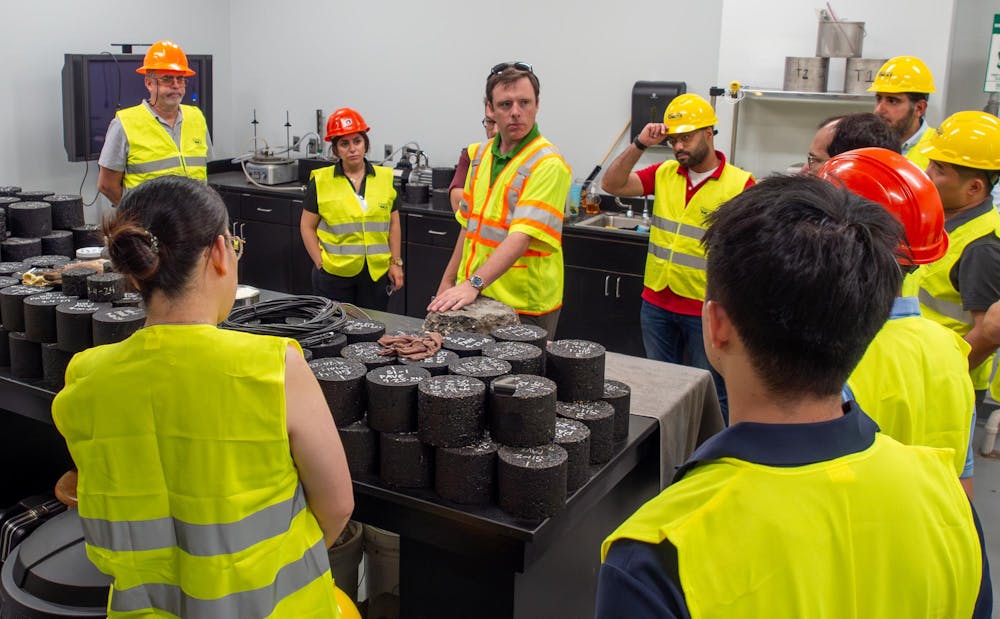The National Center for Asphalt Technology (NCAT) is changing the game in asphalt innovations and their sustainability. The minds behind these advances conduct research in labs and on the Test Track, where they work to build more economically and environmentally friendly roads.
Nathan Moore, assistant director of NCAT's Test Track research, oversees all test tack operations as well as conducting and designing experiments. He also oversees fuel economy studies and tire studies. Moore has provided compelling insight into NCAT’s impact and their work.
Moore joined NCAT as a sophomore at Auburn, when he began his work in the main lab. Here, he became increasingly interested in learning new skills in the lab and figuring out how asphalt performed differently depending on the materials used. Moore fell in love with engaging both his mind and his hands for his work.
There is a big push in the asphalt industry for sustainable pavements. NCAT has and continues to research what materials it can incorporate that are durable and reliable.
“If you're not careful you may think that sustainability just means environmentally friendly, but it's so much more than that,” Moore said. “It's using local materials. Obviously it is being sustainable to the environment, but it's also just creating long-lasting durable asphalt pavements.”
The Test Track is currently testing additives like rubber and recycled plastics to see not only how they reduce environmental impact but also how they hold up during real-life performance.
The Test Track does everything they can to try and replicate real-life scenarios as closely as possible for their sponsors. To do this, they’ll bring in aggregates from whichever state needs tests done. This way, NCAT can most accurately represent the different soil and land types that vary by state.
NCAT’s research has greatly influenced transportation in Alabama and nationally. The research saves Alabama tens of millions of dollars every year by finding out, for example, how the state can build their roads 18 percent thinner than they previously were. NCAT has also worked closely with numerous states to help their contractors with their pavement design issues.
One of Moore and NCAT’s biggest challenges is material variability. The variability of different construction materials like aggregates, asphalt or concrete can cause problems when researching.
“You can go to a quarry and take a sample of rocks and walk 100 feet over and take another sample of rocks, and they may have a different mineralogy,” Moore said. “They’ll have a different shape when they crush. They have different densities.”
Moore understands materials are constantly changing. In the future, he hopes to find new innovations in pavement design. He wants to look at alternative binders in asphalt and better understand how autonomous vehicles will affect the pavement design in the future.
Moore envisions a future where NCAT uses more recycled materials, as well as ensuring pavement design remains environmentally sustainable and economically beneficial. Moore summed up NCAT's vision simply.
“How can we make sure we are checking what they call the triple bottom line of sustainability: people, profit and planet,” Moore said. “We want to make sure we can check all three of those, take care of our people, build good roads.”
As NCAT continues to break new ground in pavement design and asphalt research, Moore encourages any interested students to reach out to him. NCAT’s Test Track isn’t just about building roads that last but also strives to protect the environment and the people who work and drive on them.
Do you like this story? The Plainsman doesn't accept money from tuition or student fees, and we don't charge a subscription fee. But you can donate to support The Plainsman.





